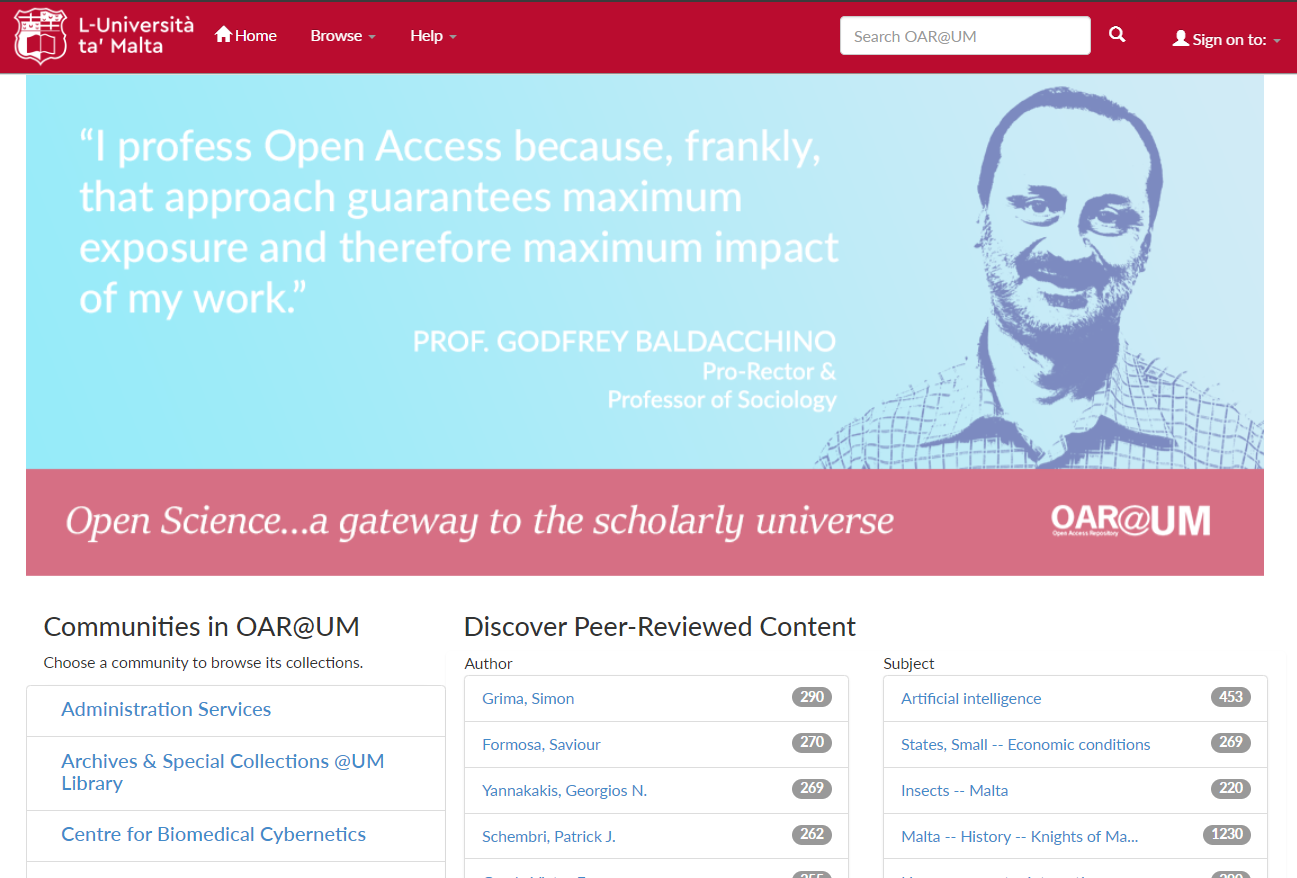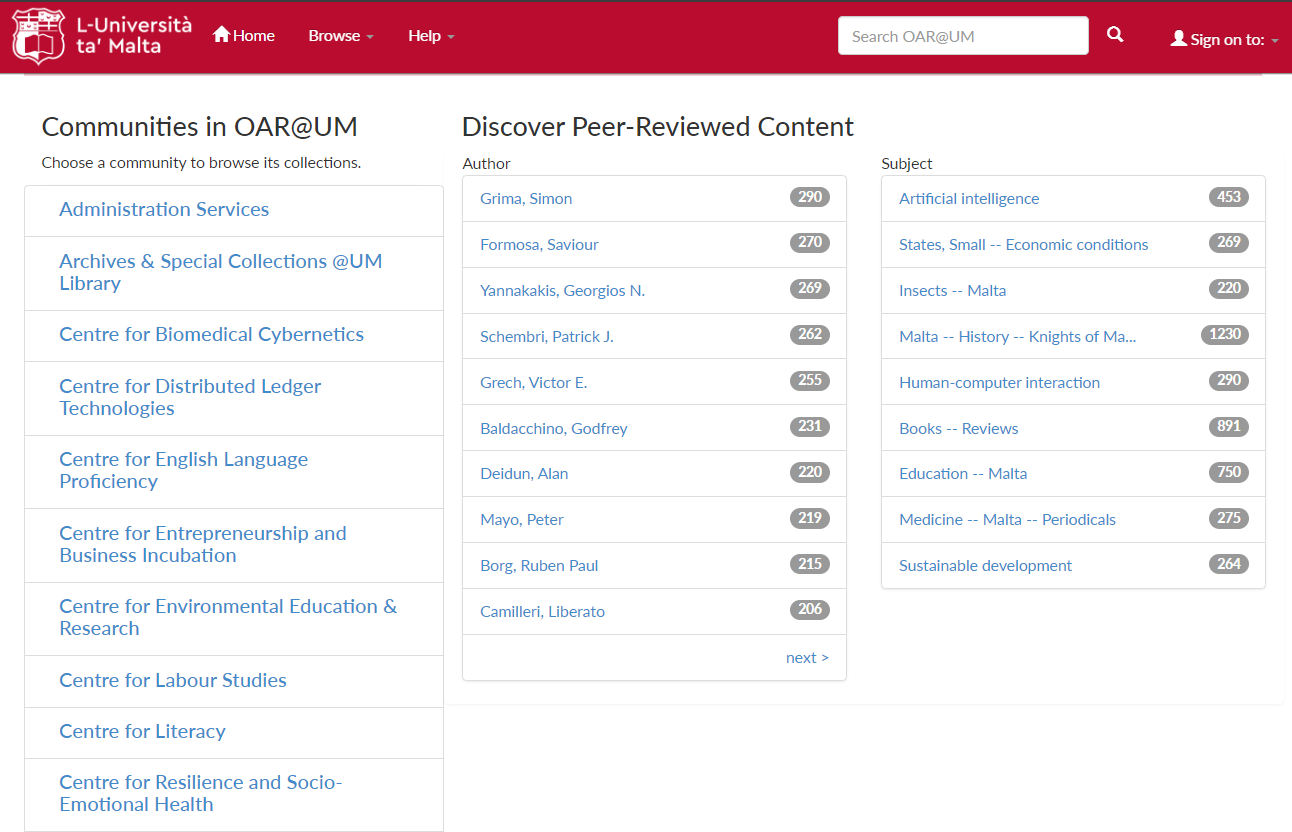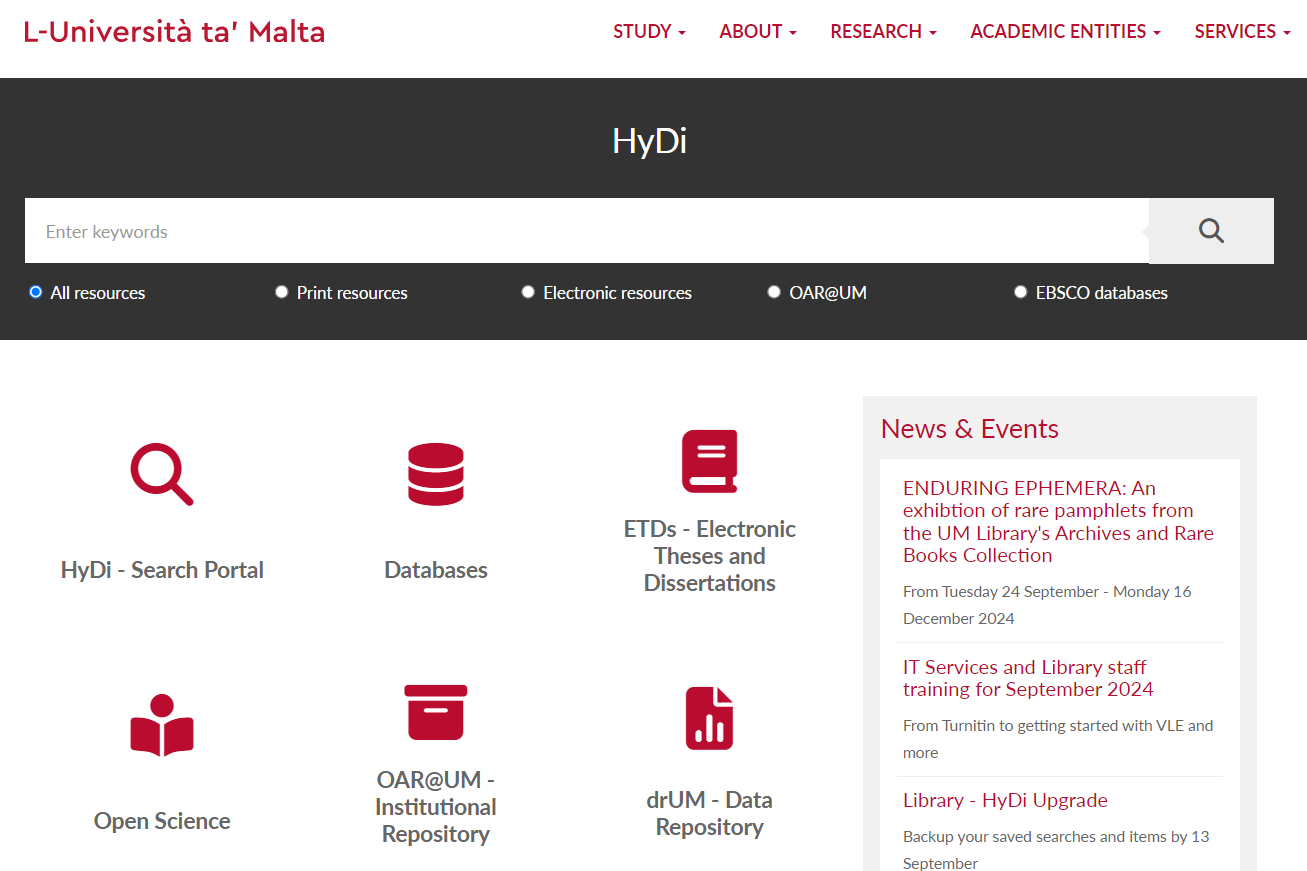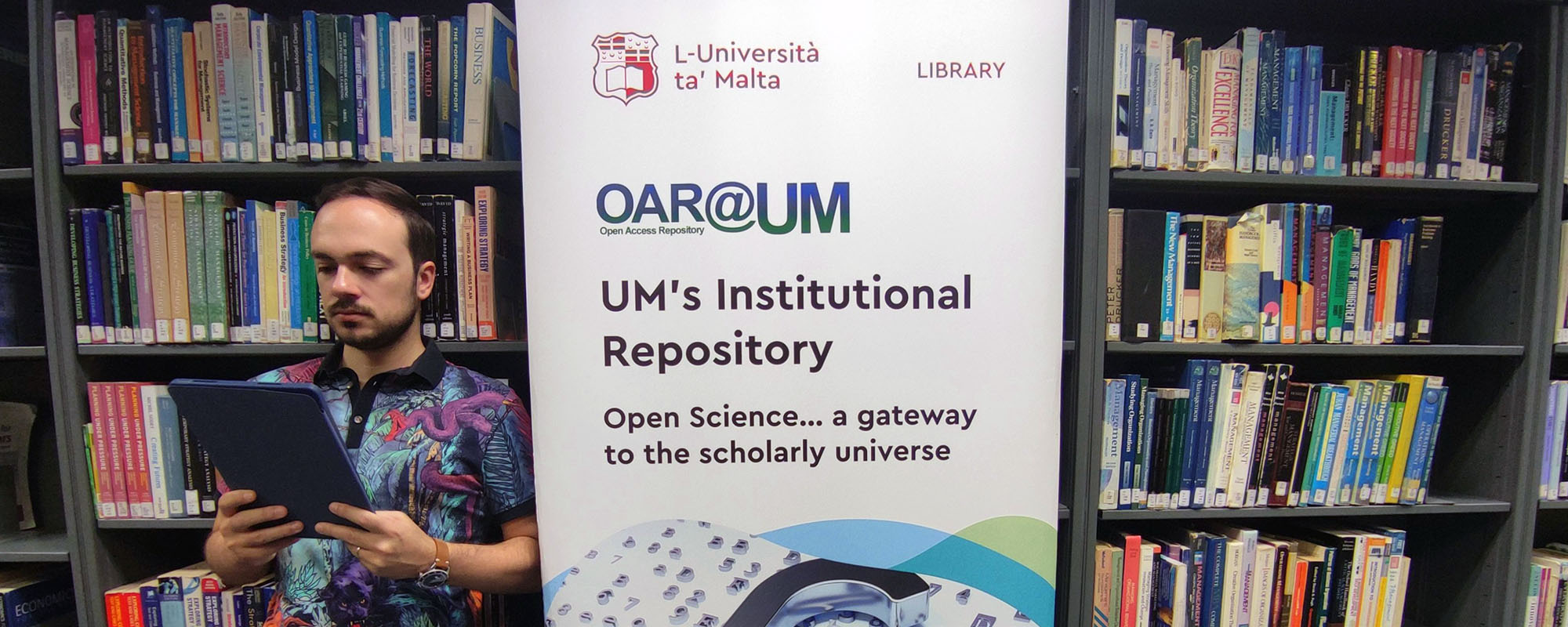This year marks a significant milestone for UM as we celebrate the 10th anniversary of OAR@UM, the University’s Open Access Repository. Its role reflects UM’s commitment to enhance the visibility and dissemination of research output generated at UM.
Over the past decade, OAR@UM has become a cornerstone for sharing knowledge. Like other repositories of higher education institutions, OAR@UM’s primary goal is to collect, preserve, and disseminate the University’s research output. Managed by the UM Library, the repository is transforming the way research is accessed and utilised, making high-quality academic outputs freely available. Beyond this, OAR@UM provides the necessary infrastructure for the UM Library to store and manage various digitised resources that were once accessible solely in print format.
Open Access is essential for democratising knowledge, as traditional academic journals often charge high subscription fees. OAR@UM actively breaks down these financial barriers that limit information access, effectively aligning with broader European initiatives, such as the Horizon 2020 program, which mandated Open Access Publishing for funded research.

A National Resource, A European Mindset
Since its launch in September 2014, OAR@UM has experienced exponential growth, hosting a diverse range of materials including peer-reviewed articles, theses and dissertations, conference papers, audio-visual content, digital exhibitions, and special collections. As of today, the repository contains just over 114,000 items, with almost 9,000 new submissions this year alone – and 2024 isn’t even over yet! This extensive repository not only showcases the academic excellence of UM but also serves as a vital resource for academics, researchers, students, and the general public.
OAR@UM’s extensive collections, particularly its rich archive of doctoral theses and special collections, provide invaluable insights into Malta’s academic and cultural heritage. As the sole repository on the island, OAR@UM has a dedicated collection for storing and preserving Maltese research and culture. And so, UM’s Institutional Repository also includes external research collections, such as local journals not affiliated with UM, historical ephemera, and publications produced by various Maltese and Gozo entities.

UM implemented an Open Access Policy in June 2021. This policy ensures that all research produced at UM is deposited in OAR@UM, enhancing the visibility, accessibility, and impact of the institution’s scholarly outputs. The policy mandates the immediate Open Access of all deposited research, subject to publisher agreements and embargo periods, thereby aligning with European Open Access standards and UM’s mission to disseminate its research widely and freely.
The Open Science Department at the UM Library has spearheaded a number of key projects to enhance OAR@UM. One notable initiative is the Publications List Project, which modernised how academic outputs are catalogued and displayed on the University’s profile pages. This project involved transitioning from a legacy system to a more integrated and comprehensive method using OAR@UM.
Another significant milestone was the launch of drUM, the University’s data repository, in October 2023. This platform extends the principles of Open Access to Research Data Management, allowing researchers to store, share, and collaborate on datasets. The implementation of drUM represents a significant step forward in UM’s commitment to Open Science and data transparency.

A Marathon Not A Sprint
The UM Library is committed to continuing to expand OAR@UM’s offerings and enhancing its usability. Its future plans include integrating more multimedia resources, improving user experience, and actively promoting the repository within the academic community. The Open Science Department also plans to increase training and support for researchers, ensuring that OAR@UM continues to evolve with the changing landscape of scholarly publishing.
OAR@UM is a testament to UM’s dedication to Open Access and the free dissemination of knowledge. As THINK joins the UM Library in celebrating their hard work thus far, we look forward to the next decade of barrier-free research.
For more information and to explore the repository, visit OAR@UM






Comments are closed for this article!